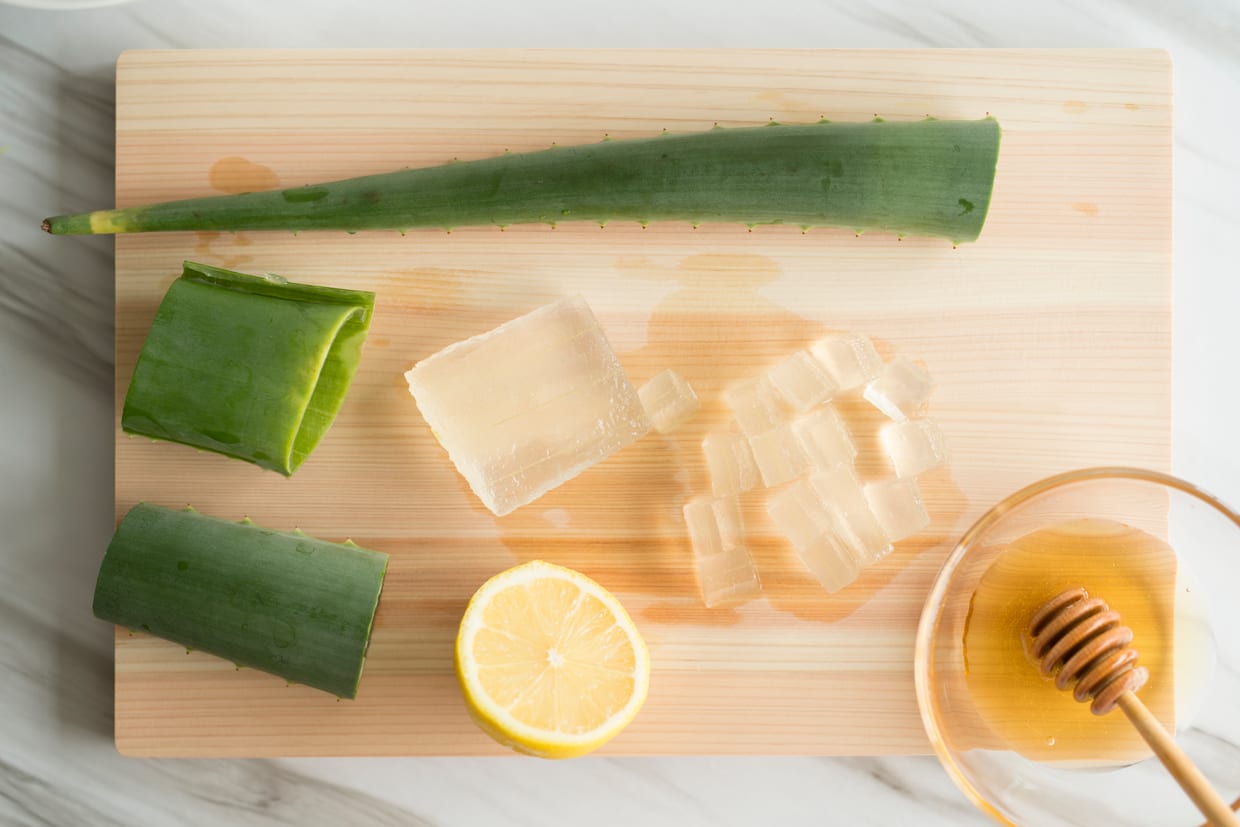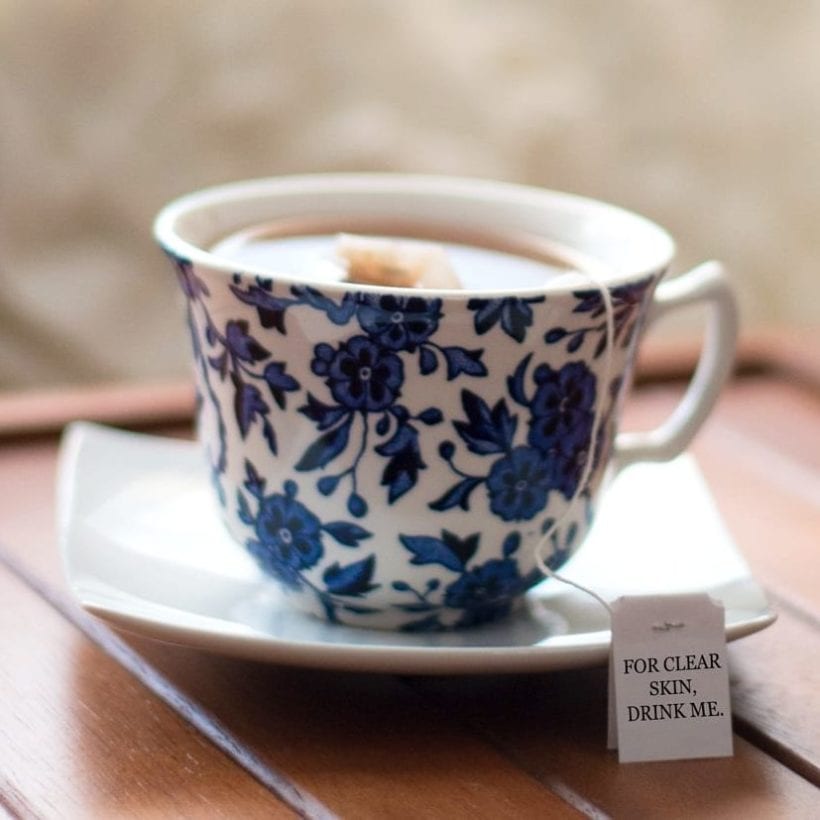For many of us, this increased time at home has led to a decrease in motivation and energy levels. It is hard to find the willpower to virtually socialize or go on a run after 8-plus hours at your makeshift workspace. No matter how nice your new IKEA desk is, a makeshift closet office is still a closet.
I have been feeling depleted and combating it the old-fashioned way – multiple cups of coffee. However, it rarely works (and leaves me jittery) so I decided to get even more “old-fashioned” about it. I reached out to Letha Hadady, M.S., D.Ac. one of the nation’s leading experts on natural Chinese remedies and Ayurveda, bestselling author and teacher at the Academy of Healing Nutrition.
While parts of Ayurveda and traditional Chinese medicine are super popular (yoga, meditation, Tai-Chi, acupuncture), lifestyle and diet are not as common to people. This is unfortunate because these changes can help lead to an increase in energy levels. “There are many Ayurvedic herbs that are extremely helpful, but we just are not familiar with them,” says Hadady. For example, Gotu Kola is an herbal supplement that balances both hemispheres of the brain and is meant to help you achieve higher consciousness. Here is what else she had to share:
You need to eat at the right times
“I think most Americans feel that they can just have any kind of schedule that they want. That they are unaware of the consequences for their skin, hair, vitality and mood. Keep the times regular because our organs work better when they know when to expect food and rest. The organs of digestion are most active and most available to us from 7 to 9 AM in the morning and that’s when breakfast should happen because your body can turn that nourishment into the blood which beautifies the skin, hair, nails and feeds the nerves, the bones, etc. Breakfast should be a complex carbohydrate and a protein. A cup of coffee is not going to do it, as it’s not going to make blood carries oxygen all over to keep us well and help our immune system.
“Lunch should be a protein around noon because we need protein for our skin and hair.”
“If you want to fix your blemishes and PMS symptoms, it’s good to eat lighter at night because it puts less stress on the digestion. Dinner should be the lightest meal of the day. You don’t want to be struggling to digest a heavy meal late at night. Try a soup and a salad or miso with tofu.”
Drink more tea
“Drink tea. It has so many benefits that are healthful and beautifying. Tea has a chemical called L-theanine which raises our mood and it has other natural chemicals that protect our heart and helps to reduce cholesterol. Some of the Chinese teas I’m particularly fond of not only [their] taste but their slimming and cleansing effects. Pu-erh is a fermented tea, Camilla Sinensis, not an herbal tea and it helps to reduce cholesterol and is helpful for people who overindulge in fatty and greasy foods. It is recommended for digestion and heart health.

“Other teas that can boost your energy include white tea, green, oolong, jasmine [and] black teas. There are many grades (qualities of teas) Chinese teas are named for their province of origin and processing. For example, Longjing green tea comes from Longjing village. Chinese teas come from Fujian and others come from Taiwan. Herbal teas might include mint, dandelion, American ginseng or oregano, depending upon their use. Mint is digestive; dandelion is cleansing; American ginseng refreshing, cooling, moistening, useful in hot weather and recommended for diabetes.”
Know if your body runs hot or cold
A lot of people who are overheated crave hot spices because the body likes to stay the same even in illness and imbalance.
“We should know whether we are running hot or cold. It sounds like the faucet, but some people tend to be overheated. Women going through menopause and postmenopause, people who are blood deficient, people who smoke, people who drink and use caffeine a lot tend to get inflammatory symptoms. How do you know? You look at your tongue.
If it’s a red tongue and you’re thirsty a lot, you need to have more cooling foods: the bitter greens – chicory, green herbs like basil, salads. The summer is a good time for watermelon because it’s also diuretic and therefore cleanses the whole digestive and urinary system. Green tea, white meat, fish, steamed vegetables, lightly cooked foods. No hot spices! A lot of people who are overheated crave hot spices because the body likes to stay the same even in illness and imbalance. Chilled or cooling foods are good if you are thirsty a lot, especially if you have diabetes or another inflammatory illness like arthritis.
If you have a pale pink puffy tongue that’s full of water, you could use more tonic foods: foods that are warming and spicy. Many of the spices we have in our kitchen like ginger, pepper, cardamom and clove are going to give a person more energy because they help to increase the functions of your digestive organs.”
Try sipping on aloe vera
“Aloe juice with lemon is good for anyone who has halitosis, acne, heartburn, acid reflux, jabbing painful menstrual cramps or constipation. You can purchase the juice or the gel at any health food stores. Don’t use the kind of aloe that goes on your skin for sunburn because you are going to drink it. It goes through the whole body and works wonders for many of our organ systems. For people unused to aloe, they might add 2 tablespoons to a cup of water and squeeze some lemon for flavor. Once a day is a good start. People with ulcers, digestive problems, PMS pains, constipation can drink more than once a day. Aloe is soothing, cooling, alkaline. More than 1/4 cup of aloe would most likely be laxative.”

When researching herbs search for the Latin name
“The Western medical establishment has been financially backed by drug companies for so many years that these companies are more in favor of using western drugs than listening to possible benefits of Chinese research and international research on herbs. It’s a financial prejudice and ethnic prejudice. But if you want to go out and learn more about certain herbs you should search for the herbs name in Latin, not the popular name it goes by in America. All herbal medicines have Latin names that make it part of the international Materia Medica (the body of collected knowledge about the therapeutic properties of any substance used for healing). Put the Latin name into Google, you’re going to get valuable international information and research.”
We only recommend products we have independently researched, tested, and loved. If you purchase a product found through our links, Sunday Edit may earn an affiliate commission.








